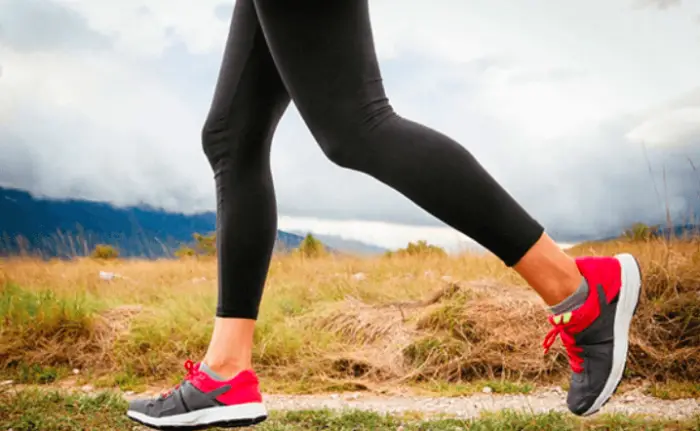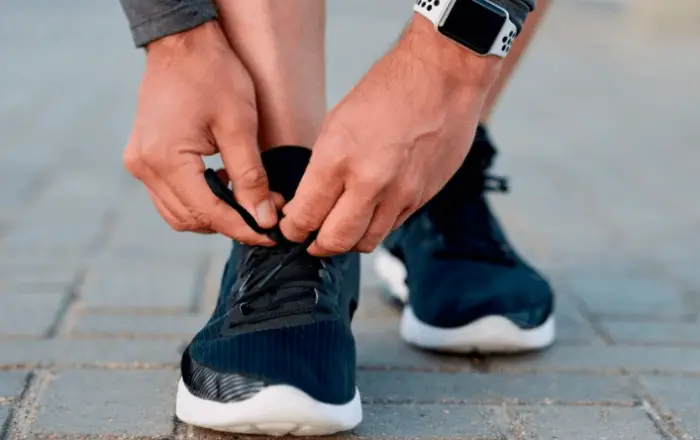As a runner, you need to focus on your shoes more than most athletes. A good pair of shoes can affect strenuous activities like running so gratefully. In contrast, wearing the wrong shoes can cause injury at any time.
You don’t need an expensive pair of shoes to run faster in the marathon. Choose a shoe that enhances your performance, cushions your feet, and gives maximum comfort. While you’re in a marathon or on a long track, your feet require paramount support.
People who are uninformed, underestimate the importance of perfect-sized shoes. Furthermore, sport or exercise-specific shoes can help your performance, allowing you to make quick direction changes.
How Do Shoes Affect Running

To induce all the awareness, here we’ll discuss a few factors of how do shoes affect running –
- Provides Overprotection
When you’re running on rough surfaces all day, an excellent running shoe protects you and provides extra protection. These sneakers were created with shock-absorbing technology and comfortable cushioning in mind. A softer midsole is used in running shoes for stability.
However, the more padding there is, the faster it will wear out. This will make you buy a new pair of shoes sooner than you planned. The Achilles tendon will stress you less with perfect running shoes. It’s as simple as spreading your weight across your ankles, heels, and toes that will comfort you more.
- Degenerative Disc Disease (DDD)
Your spine will lose its shock-absorbing capacity as well as flexibility if you have DDD. You should be aware that wearing low-quality and non-padded shoes can cause back pain. It’s critical to use good-quality running shoes for degenerative disc disease.
When your feet strike the ground, these shoe cushions absorb the impact and prevent vibrations from reaching your spinal discs. Choose a pair of high-end, well-cushioned shoes to relieve back discomfort.
- Prevents Arch Support Issues
It will be challenging for you to run for an extended period of time if you have low or high arches. Furthermore, flat-footed runners’ foot arch always touches the ground, which might cause a slowdown. Overpronation occurs when a person’s foot and ankle roll inwards while running.
Several unique running shoes feature breathability and a supportive midsole for flat-footed people. Bunions, plantar fasciitis, together with shin splints caused by overpronation, will be avoided with these shoes.
- Foot Injuries and Shoes
Running in the wrong shoes can lead to a variety of ailments. There are some well-known ailments, such as ankle strains and fractures, bunions and corns, as well as other less well-known injuries.
Your running shoes should provide the right cushioning and stability to prevent these injuries. Before you choose your running shoes, there are a few rules to follow that can help you avoid these problems.
- Better Performance and Results
As a runner, the best thing you can do is invest in a high-quality shoe to improve your performance. These running shoes will motivate you to take the first step and begin running.
These sneakers provide maximum comfort while also improving your endurance and consistency. Over time, you’ll enhance your athletic performance and your step count while jogging great distances. Wearing the best running shoes will help you run faster and improve your stride.
How to Choose the Right Pair of Shoes for You?

Here are some crucial considerations that can help you find a pair of shoes that fits well. Taking into account all of these factors, choose the ideal pair of shoes that will improve your running performance-
- Consider the Type of Surface:
Though there are various types of surfaces, you must choose which one you will run on. Such as road running requires a lighter shoe, whereas trail running necessitates traction.
- Designed for Running:
Commit sure that the shoes you purchase are specifically designed for running. Regular running shoes will not provide the necessary support and traction for a longer run.
- Get a Professional Evaluation:
Evaluate your foot, including gait analysis, at any local shoe shop on a frequent basis as it varies with age. It will assist you in determining the characteristics you require in your next pair of shoes.
- Try as Many Pairs as Possible:
You should try on as many pairs of shoes as possible to locate the ideal ones that fit your needs. If possible, go for a short run and pick the most comfortable one for your feet.
- Get Fit in the Afternoon:
Your feet swell up during the day as a result of physical effort. Select a shoe that is half a size larger than your usual size.
- Cushioning underfoot will depend on your preference:
Do you prefer to run on a cloud with the most cushion, or do you prefer to feel the earth beneath your feet? There are two factors to consider while choosing a running shoe. Cushioning refers to the thickness of the material under the midsole, whereas stiffness of the foam and heel drop refers to the heel drop.
- Determine whether you need a specific type of gait support:
If your foot tends to roll to the far outside or inside, you should wear a certain style of shoe. There are many sorts of shoes to choose from depending on your foot type.
How Long Should Running Shoes Last?
A run will cover between 400 and 500 miles, which is equivalent to three to four months of regular jogging. If you run 20 miles per week, your shoes should be replaced every 20 to 25 weeks. Check to see if the midsoles and outsoles of your shoes are compressed or worn. You should buy a new pair of shoes if that is the case.
Do Different Shoes Affect Running Speed?
According to studies, the weight of your running shoes has a significant impact on your pace. The lighter the shoe, the faster you can run on. If your shoes are 100g lighter than ordinary ones, you’ll be able to complete your marathon in 1 minute less than the official time. Every 3.5 ounces added to each shoe made the runners 1 percent slower in one study. Even if the difference is only a few ounces, heavier shoes cause runners to run slower.
Wrapping Up
Over time, shoes lose shock absorption, cushioning, and stability. Running in worn-out shoes puts more stress and pressure on your legs and joints. Perhaps it leads to overuse injuries and general aches and pains. Shoes are well worth the money, despite the fact that they are a costly purchase. If you’re an aspiring runner who wants to run marathons with ease, you should invest in a nice pair of running shoes. Because of the numerous benefits they provide. Running shoes will help you to minimize laziness by motivating you to get up and go for a run every morning.
